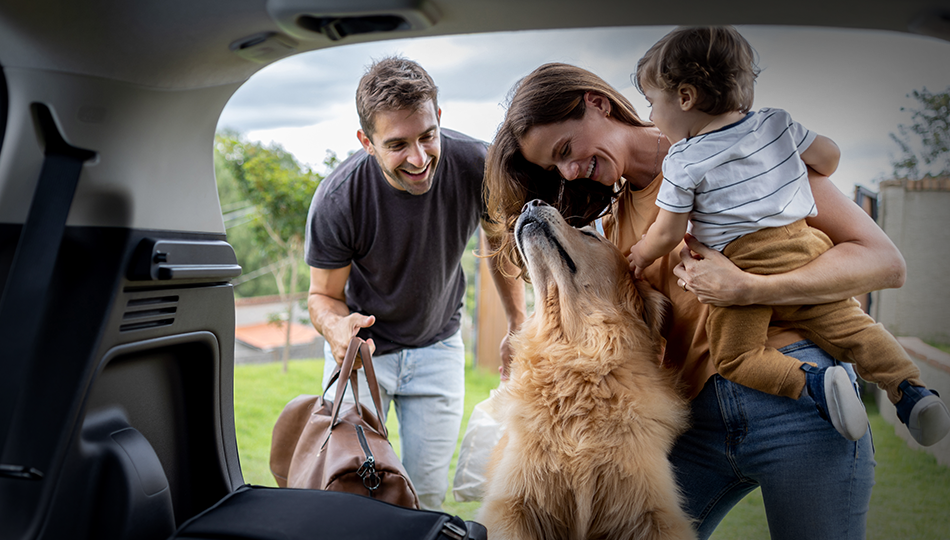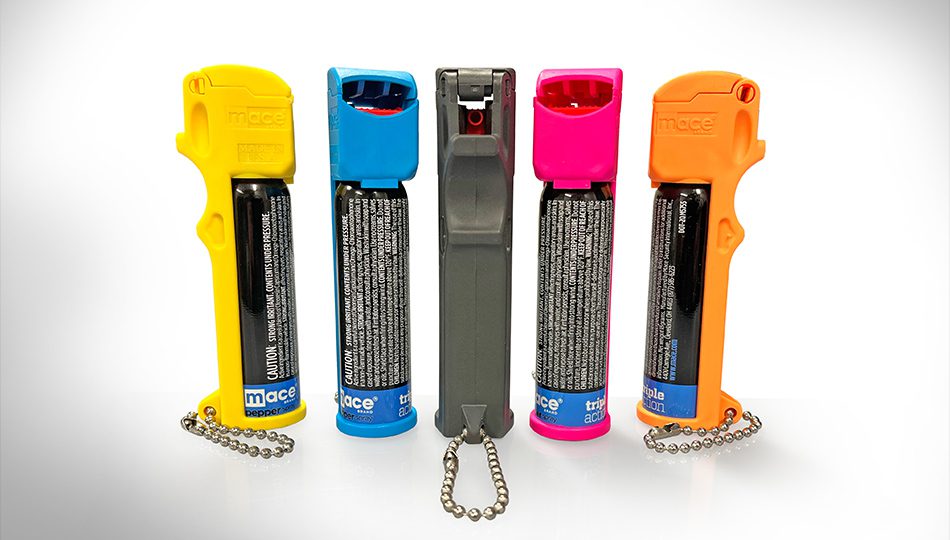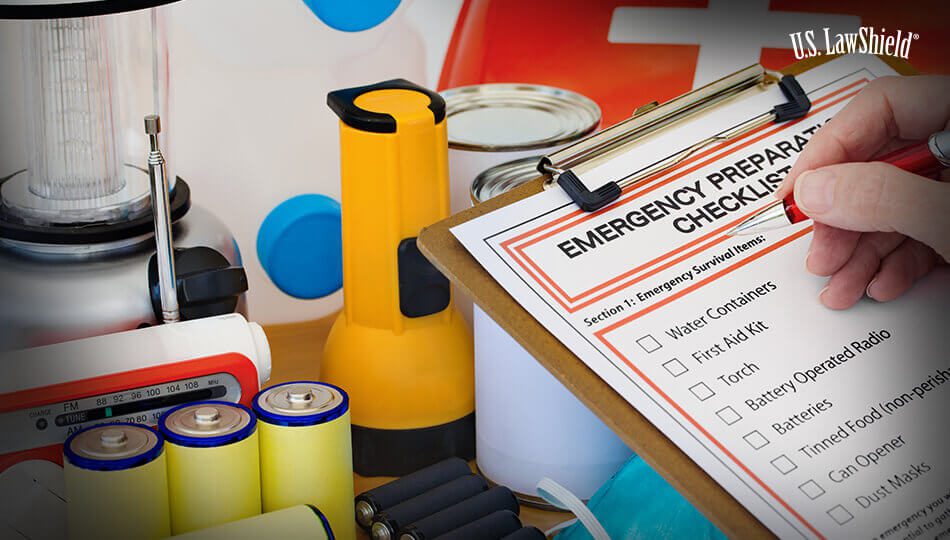The following is a video transcript.
You’re sitting in traffic when someone cuts you off. Angrily, you honk your horn. The other driver aggressively changes lanes and pulls up beside you. He rolls down his window, and you watch him frantically reaching into his glove box. What happens next and how you respond could send your life into a tailspin.
Road rage incidents are scary. When driving at high speed with your attention divided in a high-stress environment, you have limited time to think. Based on past experience from U.S. LawShield members from around the country, they’d like to share the important lessons some have learned the hard way. You need to have a plan if you find yourself in this situation.
Do you call 911? Do you try to get away? Do you drive home? What if you’re forced to protect yourself? Do you provide a statement to the police? Do you have a plan for the legal repercussions to follow?
Incidents like this happen all the time, and sadly, all too often, innocent people find themselves tangled in a long legal fight. Maybe they thought the danger had passed. The fight was over. They stopped the perpetrator from committing a crime against them or their family. Why call the police if no crime occurred?
A recurring theme for people tangled in the legal system is this: they didn’t speak to an attorney prior to talking with the police. What you say after a road rage incident can mean the difference between finishing your drive home or winding up in handcuffs downtown. The time for you to formulate a plan is now.
If you’re involved in a self-defense incident, including road rage, you should speak to an attorney before you make any statement to the police. Call the U.S. LawShield emergency hotline and your Independent Program Attorney will provide the help you need to navigate through these difficult situations.





OM gosh thank you so much for sharing this vital piece of information.I had no idea we could use Law Shield for a potential situation like this to.I believed the (US.L.S.) service was only to be used in dealing with incidents that involved self defense situations where a fire arm was involved. My only question is this what if I tell the officer working the scene that I will not talk or make a statement before I call USLS and he/she says no-I have to talk with them right now!
Isn’t being the first to call 911, for the record, also critical? How are both needs addressed?
Thanks for highlighting the potential pitfalls. It would be nice to have some suggestions or recommendations on how to handle the situation.
Living in FL. These things happen all the time. People in South FL. Are CRAZY. Your advice is very helpful. I am a member of US lawshield for just that reason, to FULLY protect myself.
Thank you
This is very true, I found myself in a road rage incident that did exactly that… I was arrested and spent $17,400 to defend myself and clear my name for protecting myself and my family from a lunatic driver.
I am now a member of Texas Law Shield, at the time of the incident I wasn’t.
Ignore this advise. Things happen too quickly before police arrive & then call Law Shield. Stop the vehicle. Duck down & call 911. Have weapon available but NOT displayed. If you can exit your vehicle safely, do so but stay low. Wave down assistance if possible. If person continues to shout, aim a weapon or exit their vehicle to approach you, then you have little recourse left. Recognize & expect an adrenalin rush should you need to take action.
Road rage directed at us is exactly why we got our conceal carry license and this insurance. I would like some ideas of what to do DURING the incident. I would obviously not go home and show an aggressive person where I live. But what are my options?
Soooooo what is the ONE thing???????
This does NOT address what to do after the incident. It doesn’t describe what was involved in the potential incident. I don’t find this information helpful at all . . . and I AM a member of USLawShield.
To those who are critical of this article because it doesn’t tell you what to do in this circumstance. Think for a moment, this is a video produced by a group that provides legal representation to it’s clients. Can you imagine the liability they could incur if they told you to “draw your weapon” or “try to escape”, then, when you follow that advice in your particular situation it doesn’t work out? Every situation and circumstance is unique. They are advising you to have a plan, think about what you would do now, before you are confronted with a similar circumstance, you should already know what your preferred action will be, think of alternate plans (plan B, C, etc). Be prepared. If you are carrying a firearm and you haven’t thought about or talked about scenarios when you might have to use it, you should bring the firearm home, unload it, and lock it up.
Road rage happened to me as well, started on the highway, I got off & she followed me. She kept trying to push me onto the sidewalk. SHE called the police while doing this. Police arrested me & I had to hire an attorney. What crap. She walked away free & clear because SHE called them & they believed I was the nut.
Looks to me as though some guidance is needed in such a case; and, the article was not adequate. In my opinion, there is a clear-cut branch in the decision-making process: “Did I do anything for which I might be culpable?” Brandishing a gun would cross that line. Trying to get away would not.
Now, if you feel that “I did do something”, then it might be better to attempt to call your Self-Defense Insurance carrier and see if they are able to pitch-in immediately. I imagine they probably would NOT be able to do so, but it only takes a minute or two to place the call and see whether the person who answers is able to take some action beyond recording your request for service.
If you feel that “I did NOT do anything” then it seems clear to me that you are in a race to be the first-to-call. If you did not do much (the attacker is not lying on the asphalt bleeding out) then it’s doubtful you have much opportunity for the Insurance carrier to mitigate the situation. Again, you seem to be in a race to be first-to-call.
The worse the situation is (e.g., shots fired) the less it matters that you be the first-to-call and the more it matters that you not screw-the-pooch. Now, you have very little control over what happens. The Insurance carrier won’t necessarily be able to do something by the time you really need to call 9-1-1. You have to call 9-1-1 promptly or you will be in still worse shape. Probably worth your while to take 1 or 2 minutes to calm yourself down and figure out how much you need to say in this call without saying anything more that shouldn’t be said without getting your attorney present.
My opinion counts for little; but, it is something along these lines that US Law Shield ought to think-through for us and provide input.
that’s good advise if you survive, why didn’t you provide the answers to the questions you provided?
It seems that most of the commertors must have slept during any seminars they may have attended! I only read a couple that where not hustle towards TLS..
However, having attending MANY seminars, I find the information very helpful. People, you need to pay attention especially with the wacko’s driving now days!
Always have a plan A, B, C and more if needed for every situation you are in!
Well said Cory (Nov 12th, 5:58am).
My approach has always been avoid the “crazies”. Only once did that not work when the other driver crossed two city street lanes to get in front of me and slammed on his brakes. He came out of the car cursing and shaking his fist (I saw no gun). I immediately called 911 and told them I was leaving the scene and wanted police dispatched to my office location. The crazy followed me but could not get into my parking garage. The fact that I called police first and told 911 operator I was leaving the scene for my own safety put things in my favor. Nothing came of the situation but only because I had called police first.
I recently installed a dash camera that captures front and rear views. The filmed testimonials by potential victims of good liars convinced me. It’s like having an independent eye witness and the police can make decisions based on their evaluation of your recording on the spot. Also could be a great defense in lawsuits.